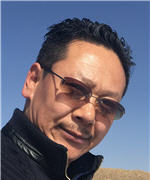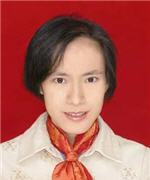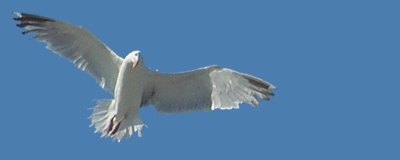
扎西才让
ZhaXiCaiRang
 
扎西才让,藏族,生于1972年1月,甘肃甘南人。1992年开始写作,作品散见于《十月》《民族文学》《诗刊》《诗选刊》等多家文学期刊。作品入选《新时期中国少数民族文学作品选集》《70后诗歌档案》《当代西藏汉语文学精选1983-2013》等30多部诗歌年选和总结性诗集。曾获甘肃省第四届敦煌文艺奖、第四届中国红高粱诗歌奖、第五届甘肃省黄河文学奖、《飞天》十年文学奖。著有散文诗集、诗集、小说集各一部。
ZhaXiCaiRang, a Tibetan poet, was born in January 1972 in Gannan, the south of Gansu, China. He began to write poetry in 1992. His poems have appeared in many literary journals and anthologies. He has won many awards, including the Fourth DunHuang Literary Award, the Fourth Chinese Red Sorghum Poetry Prize, the Fifth Yellow River Literary Award and the 'Flying' Decade Prize.
|

|

译者
Translator
文培红
Wen Peihong
 
文培红,女,汉族,四川大学英语语言文学专业研究生毕业,获文学硕士学位。现任西南民族大学外国语学院副教授,英语语言文学专业、比较文学与世界文学专业硕士生导师。主要研究领域为美国文学、文学翻译。参与四川省社科规划项目一项,主持西南民族大学青年项目“当代美国华裔女作家专题研究”,主持西南民族大学教改项目“英美文学与文化课程教学改革研究”。参与撰写学术专著(合著)《四川少数民族大学生英语教育研究》;出版翻译儿童文学作品两部《小熊温尼·菩》、《菩角小屋》。
Wen Peihong (M.A. in Literary Studies) is a professor and a graduate advisor at the Institute of Foreign Languages at Southwest Minzu University. Her translations include Winnie-the-Pooh and The House at Pooh Corner.
|
青海牦牛在寺院背后的一棵柏树下
静静吃草……间或抬头遥望远方的一处山谷。
秋末的阳光将柏树的阴影落在它身上。
它曾经走过雪原,趟过初春的小河,深匿于盛夏的丛林。
现在,它老了,形体瘦削,毛发稀少,
像极了那个来自乌兰县的羊皮贩子诺布仁青。
青海牦牛在寺院背后的一棵柏树下静静吃草,
它不知道自己还有多少这样静静吃草的时日。
但它知道:远处那座山谷里有它的童年,
有它的父母的精魂,它曾经眷恋过的青春的奶牛。
现在,它感觉到了疼痛,却无话可说。
旁边的岩石上,放牧它的羊皮贩子发出低低的鼾声。
|
|
A Qinghai yak is grazing calmly
under the cypress behind the temple.
Occasionally he looks beyond the valley afar.
in the shade of the sunshine in late fall.
He has wandered along the snowy highland.
he has waded the creeks in early spring.
he has hidden himself in the woods in midsummer.
Now,he is getting old,with skinny body and thinner hair.
just like Norbu Rinchen,a hide dealer from Wulan county.
A Qinghai yak is grazing calmly
under the cypress behind the temple.
How much more time he will still have
to graze here so peacefully.
he does not know.
Yet he does know that
he has left behind his childhood in the valley afar.
he has inherited his parents'spirit.
and he has been so attached to the young cow.
Now he feels the pangs.yet he is mute.
The dealer herdsman is snoring
on the rock nearby.
* Yak is a bovine uniquely adapted to the upland environment
of the Himalayas. Yaks serve as pack animals and as sources
of wool hides, meat, and cheese to Tibetan nomads (most of
whom are now settled) and townsfolk. This poem is set in
Qinghai Province.
|
1
一尊硕大的牛头骨放置在我的案头,
它的额骨上精心雕刻着一幅三色扎西德勒图。
是把它置于正堂,披挂哈达,焚香叩拜?
还是在怅然若失中退还给前来的客人?
2
让它与健硕躯干不要分离深埋高原不成吗?
让它以骨和肉的形体伫立于雪原不成吗?
让它的灵魂和精神永存于颅内不成吗?
客人答曰:“血肉已去,唯神长存……”
3
但我仍能梦见那风雪弥漫的雪域高原,
一百头牦牛深邃的眼眸里,暗藏着雪崩前的静寂。
仍能梦见那遥远的生的长哞与死的哀鸣,
使我多次在大汗淋漓中悚然苏醒……
|
|
1
A huge yak skull is on my desktop.
the tri-colored phrase "Tashi dele"is carved on its forehead.
Shall I place it in the main room,ador it with hada,then burn
incense and pray.
or with a sense of loss return it to the visiting guest?
2
Why not let it go undetached with its brawny body.
To be buried deeply in the earth of the plateau?
Why not let it stand up straight on the snowy tablelands
with its bone and flesh fused as one?
Why not let its soul and spirit
forever live inside the skull?
The guest answered."Its blood and flesh are already gone.
leaving only the spirit..."
3
But still I dreamed that on the snowy.stormy plateau.
in the deep eyes of one hundred yaks.
was hidden that dead stillness of just before the avalanche.
Still I dreamed of the distant lowing of the living
and whining of the dying.
Always was I startled,shocked awake.dripping with sweat.
* Yak skulls carved with tashi dele (a commonly heard expression
of good fortune) and Buddhist sayings are often found in souvenir
shops throughout Tibetan communities in China. A hada is a sacred
scarf used to honor guests and drape over sacred objects.
|







